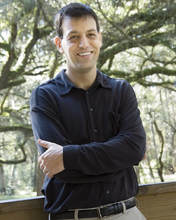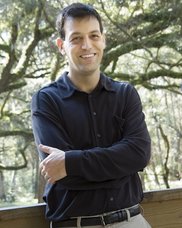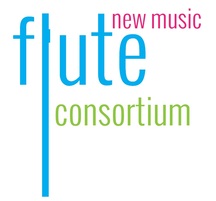Learn More About...Paul Richards We’re always gratified that composers enter our contest more than once. We hope it is a sign that they have a positive experience. Five composers who were finalists in our inaugural 2014 competition have found success in multiple competitions. Nicole Chamberlain, Joao Pedro Oliveira, and Greg Steinke were all finalists in multiple years. This year, two former finalists joined that club, not only repeating as finalists, but their works won their respective categories! We’ll feature Cherise Leiter and Paul Richards in video interviews soon, as we do with all winners, but we wanted to make sure we featured this year’s winners quickly, so we’ve also invited them to be featured in a Composer Spotlight Interview! Below is Paul Richards’ prior Composer Spotlight. Paul was a finalist in 2014 for his piece for flute alone, Tomorrow in Australia. Tomorrow in Australia is one of our most frequently performed finalist works. FNMC members have played it at the Florida Flute Association Convention, Kentucky Flute Society Flute Festival, and the Mid-Atlantic Flute Association Convention. We’re quite certain that Entanglements for flute and piano, the winning work in this year’s flute and accompaniment category will be very popular with our members and we look forward to sharing information about performances soon! You may have heard Entanglements at this summer’s NFA Convention. Paul’s colleague at the University of Florida, Kristen Smith Stoner, has always been a loyal champion of his works and she performed it at the 2016 NFA Convention. In addition to composing Entanglements since he was last featured, Paul has just completed a new work for Pierrot ensemble entitled Ouroboros. It will be premiered in February 2018! We look forward to hearing it! Repost-Paul Richards Composer Spotlight 5/2017 We’re so lucky that so many of the composers who have been honored in the FNMC Composition Contest have taken the time to participate in the Spotlight Series. allowing our members and followers to learn more about them and their music. Today, we’re excited to share our interview with Paul Richards. The solo flute works have been particularly popular with our members and one of the most performed is Paul Richards’ Tomorrow in Australia. FNMC members have performed Tomorrow in Australia at the Florida Flute Fair, Florida State University, the Kentucky Flute Fair, and the Mid-Atlantic Flute Convention. We were not surprised to learn that Paul is particularly interested in color and timbre as Tomorrow in Australia explores the different ranges of the flute and deftly incorporates extended techniques. Q&A with Paul… Who are your favorite "new music" composers and why? So much incredible music is being made every day, and I'm pulled by so much of it. If asked tomorrow, my answer would surely change. Today: I love Andrew Norman's constant inventiveness and his playful spirit - every piece is a fantastic roller-coaster ride. I love what John Hollenbeck is doing with jazz, particularly his big band work. John Corigliano and Chris Rouse have always loomed large for me, but so do Reich and Andriessen, and Pärt and Gorecki. Lei Liang's writing is dazzling to me, too. There's no shortage! What about new music for flute appeals to you? Color. I'm not a composer who is interested in timbre for its own sake, because I just don't think that way (though I admire composers who do), but compelling timbre is a critical part of my practice. The variety that is possible with a flute makes it a really important instrument for me, as both a featured instrument and a part of larger ensembles. And by color, I don't just mean the so-called extended techniques, but the natural variety that performers bring to a piece, based on range, dynamic indication, and other clues that I put into the score. Describe your musical background and current activities. I come from a musical family. My father is a cantor and composer, and many other members of my family are professional musicians. I started with popular music and gravitated quite early to composition, writing pretty obsessively since my late teens. Recently, I've been deeply involved with the voice, with a large book of songs for soprano and piano, and two full-length operas. I've got a third opera in progress, along with some other large pieces on the horizon. More About Paul… Paul Richards is Research Foundation Professor and Head of Composition at the University of Florida. His works have been heard throughout the United States and internationally on six continents. Awards include Special Distinction in the ASCAP Rudolph Nissim Prize, the Jacksonville Symphony Orchestra’s Fresh Ink composition prize, the New Music for Sligo/IMRO composition prize, and many others. Commissions have come from orchestras, wind ensembles, choirs, and chamber ensembles, and his works have been recorded by Richard Stoltzman, the Slovak Radio Orchestra, the Moravian Philharmonic, and numerous chamber groups. Music by Paul Richards is recorded on the Meyer Media, MMC, Capstone, Mark, Pavane, OAR, and Summit labels, and is published by Carl Fischer Music, TrevCo Music, the International Horn Society Press, Jeanné, Inc., and Margalit Music. If You Liked Tomorrow in Australia… Dem Alef-beys Instrumentation: Flute/Piccolo, Oboe, Clarinet in Bb, Bassoon, Horn in F, Trumpet in C, Trombone, 2 Percussion, Piano, 2 Violins, Viola, Cello, Double Bass Date of Composition: 2008 Duration: 9’ Diversions on a Sacred Tune Instrumentation: Flute, Clarinet, Bassoon Date of Composition: 1995 Duration: 4’30” Entanglements Instrumentation: Flute and Piano Date of Composition: 2016 Duration: 8’ Harbor Music Instrumentation: Flute, Oboe, Clarinet in Bb, Alto Saxophone, Bass Clarinet, Bassoon, Horn, Vibraphone, Marimba, Piano, Violin I, Violin II, Viola, Cello, Double Bass Date of Composition: 2016 Duration: 3’30” Kaleidophone Instrumentation: Flute/Piccolo, Bb Clarinet, Bassoon, 2 Percussion, Piano/Harpsichord, Violin, Viola, 'Cello Date of Composition: 1996 (rev. 2000) Duration: 8’30” Kante le Mesma Kantika Instrumentation: Flute/Piccolo, Oboe/English Horn, Clarinet in Bb, Bassoon, Horn in F, 2 Percussion, Piano, 2 Violins, Viola, Violoncello, Double Bass Date of Composition: 1995 Duration 12’ Songs to Survive the Summer Instrumentation: Tenor and six amplified players (Flute, Violoncello, Electric Guitar, Electric Bass Guitar, Keyboard, Drum Set Date of Composition: 1993 Duration: 35’
0 Comments
Get to Know...Paul Richards We’re so lucky that so many of the composers who have been honored in the FNMC Composition Contest have taken the time to participate in the Spotlight Series. allowing our members and followers to learn more about them and their music. Today, we’re excited to share our interview with Paul Richards. The solo flute works have been particularly popular with our members and one of the most performed is Paul Richards’ Tomorrow in Australia. FNMC members have performed Tomorrow in Australia at the Florida Flute Fair, Florida State University, the Kentucky Flute Fair, and the Mid-Atlantic Flute Convention. We were not surprised to learn that Paul is particularly interested in color and timbre as Tomorrow in Australia explores the different ranges of the flute and deftly incorporates extended techniques. Q&A with Paul… Who are your favorite "new music" composers and why? So much incredible music is being made every day, and I'm pulled by so much of it. If asked tomorrow, my answer would surely change. Today: I love Andrew Norman's constant inventiveness and his playful spirit - every piece is a fantastic roller-coaster ride. I love what John Hollenbeck is doing with jazz, particularly his big band work. John Corigliano and Chris Rouse have always loomed large for me, but so do Reich and Andriessen, and Pärt and Gorecki. Lei Liang's writing is dazzling to me, too. There's no shortage! What about new music for flute appeals to you? Color. I'm not a composer who is interested in timbre for its own sake, because I just don't think that way (though I admire composers who do), but compelling timbre is a critical part of my practice. The variety that is possible with a flute makes it a really important instrument for me, as both a featured instrument and a part of larger ensembles. And by color, I don't just mean the so-called extended techniques, but the natural variety that performers bring to a piece, based on range, dynamic indication, and other clues that I put into the score. Describe your musical background and current activities. I come from a musical family. My father is a cantor and composer, and many other members of my family are professional musicians. I started with popular music and gravitated quite early to composition, writing pretty obsessively since my late teens. Recently, I've been deeply involved with the voice, with a large book of songs for soprano and piano, and two full-length operas. I've got a third opera in progress, along with some other large pieces on the horizon. More About Paul… Paul Richards is Research Foundation Professor and Head of Composition at the University of Florida. His works have been heard throughout the United States and internationally on six continents. Awards include Special Distinction in the ASCAP Rudolph Nissim Prize, the Jacksonville Symphony Orchestra’s Fresh Ink composition prize, the New Music for Sligo/IMRO composition prize, and many others. Commissions have come from orchestras, wind ensembles, choirs, and chamber ensembles, and his works have been recorded by Richard Stoltzman, the Slovak Radio Orchestra, the Moravian Philharmonic, and numerous chamber groups. Music by Paul Richards is recorded on the Meyer Media, MMC, Capstone, Mark, Pavane, OAR, and Summit labels, and is published by Carl Fischer Music, TrevCo Music, the International Horn Society Press, Jeanné, Inc., and Margalit Music. If You Liked Tomorrow in Australia… Dem Alef-beys Instrumentation: Flute/Piccolo, Oboe, Clarinet in Bb, Bassoon, Horn in F, Trumpet in C, Trombone, 2 Percussion, Piano, 2 Violins, Viola, Cello, Double Bass Date of Composition: 2008 Duration: 9’ Diversions on a Sacred Tune Instrumentation: Flute, Clarinet, Bassoon Date of Composition: 1995 Duration: 4’30” Entanglements Instrumentation: Flute and Piano Date of Composition: 2016 Duration: 8’ Harbor Music Instrumentation: Flute, Oboe, Clarinet in Bb, Alto Saxophone, Bass Clarinet, Bassoon, Horn, Vibraphone, Marimba, Piano, Violin I, Violin II, Viola, Cello, Double Bass Date of Composition: 2016 Duration: 3’30” Kaleidophone Instrumentation: Flute/Piccolo, Bb Clarinet, Bassoon, 2 Percussion, Piano/Harpsichord, Violin, Viola, 'Cello Date of Composition: 1996 (rev. 2000) Duration: 8’30” Kante le Mesma Kantika Instrumentation: Flute/Piccolo, Oboe/English Horn, Clarinet in Bb, Bassoon, Horn in F, 2 Percussion, Piano, 2 Violins, Viola, Violoncello, Double Bass Date of Composition: 1995 Duration 12’ Songs to Survive the Summer Instrumentation: Tenor and six amplified players (Flute, Violoncello, Electric Guitar, Electric Bass Guitar, Keyboard, Drum Set Date of Composition: 1993 Duration: 35’ |
AuthorThe Flute New Music Consortium is an organization dedicated to the creation and support of new music for the flute. Archives
June 2019
Categories
All
|

 RSS Feed
RSS Feed
